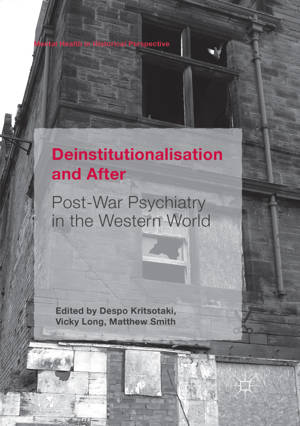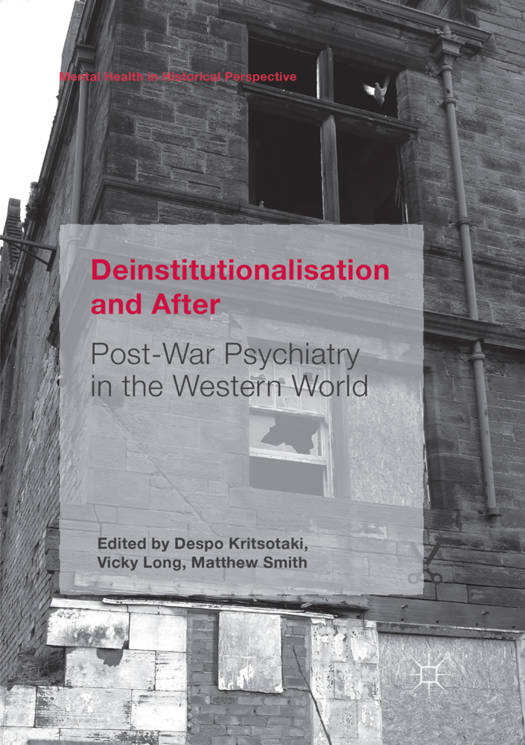
- Afhalen na 1 uur in een winkel met voorraad
- Gratis thuislevering in België vanaf € 30
- Ruim aanbod met 7 miljoen producten
- Afhalen na 1 uur in een winkel met voorraad
- Gratis thuislevering in België vanaf € 30
- Ruim aanbod met 7 miljoen producten
Zoeken
Deinstitutionalisation and After
Post-War Psychiatry in the Western World
€ 85,45
+ 170 punten
Omschrijving
The book relates the history of post-war psychiatry, focusing on deinstitutionalisation, namely the shift from asylum to community in the second part of the twentieth century.
After the Second World War, psychiatry and mental health care were reshaped by deinstitutionalisation. But what exactly was involved in this process? What were the origins of deinstitutionalisation and what did it mean to those who experienced it? What were the ramifications, both positive and negative, of such a fundamental shift in psychiatric care? Post-War Psychiatry in the Western World: Deinstitutionalisation and After seeks to answer these questions by exploring this momentous change in mental health care from 1945 to the present in a wide range of geographical settings. The book articulates a nuanced account of the history of deinstitutionalisation, highlighting the constraints and inconsistencies inherent in treating the mentally ill outside of the asylum, while seeking to inform current debates about how to help the most vulnerable members of society.
After the Second World War, psychiatry and mental health care were reshaped by deinstitutionalisation. But what exactly was involved in this process? What were the origins of deinstitutionalisation and what did it mean to those who experienced it? What were the ramifications, both positive and negative, of such a fundamental shift in psychiatric care? Post-War Psychiatry in the Western World: Deinstitutionalisation and After seeks to answer these questions by exploring this momentous change in mental health care from 1945 to the present in a wide range of geographical settings. The book articulates a nuanced account of the history of deinstitutionalisation, highlighting the constraints and inconsistencies inherent in treating the mentally ill outside of the asylum, while seeking to inform current debates about how to help the most vulnerable members of society.
Specificaties
Betrokkenen
- Uitgeverij:
Inhoud
- Aantal bladzijden:
- 297
- Taal:
- Engels
- Reeks:
Eigenschappen
- Productcode (EAN):
- 9783319832753
- Verschijningsdatum:
- 30/04/2018
- Uitvoering:
- Paperback
- Formaat:
- Trade paperback (VS)
- Afmetingen:
- 148 mm x 210 mm
- Gewicht:
- 376 g

Alleen bij Standaard Boekhandel
+ 170 punten op je klantenkaart van Standaard Boekhandel
Beoordelingen
We publiceren alleen reviews die voldoen aan de voorwaarden voor reviews. Bekijk onze voorwaarden voor reviews.







